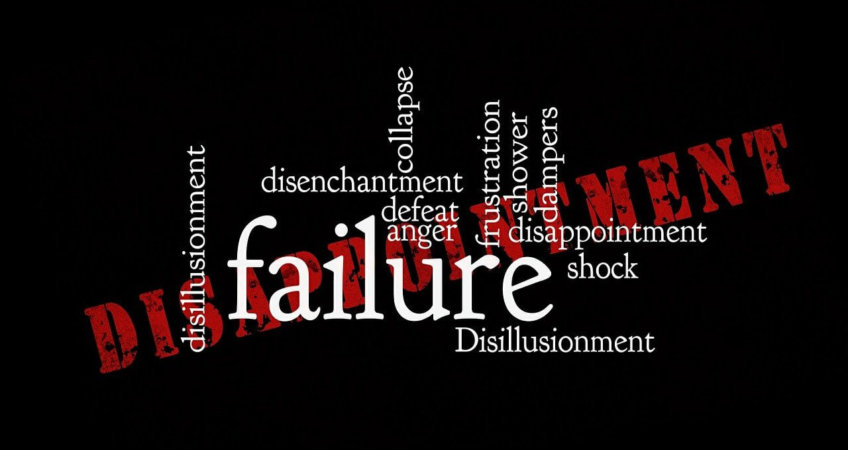The “F -word” FAILURE
Nobody likes to fail! It signals a lack of functionality, incompetence, judgement, deficiency, lack of achievement and a host of other derogatory synonyms.
It may be related to a particular event, like an interview, performance or competitive event where the result seems to be everything; where “winning” and achieving brings spoils such as jobs, material rewards and on a deeper level acknowledgement and recognition from other humans.
This end-gaining approach, “winner takes all”, can come with a heavy price ( even sometimes for the winner ) of burn-out, lack of motivation or over striving to replicate the buzz of success. The impact can even withdrawal from the activity you love in your life; for example the withdrawal of Naomi Osaka the Four times tennis Grand Slam singles title holder ( @naomiosaka ).
Rejection often comes with states that mirror grief: Disbelief, anger, bargaining, feeling down and eventual acceptance. There can be a dopamine addiction to “likes, followers, social media friends and retweets”.
At the point of rejection we have a choice about our interpretation of what it means. It boils down
to either being a victim of circumstance (“This not fair!” and playing a blame game) or asking yourself some open questions like “ What can I be thankful for about this?”, “What can I learn from this?”
The answers of our inner “appreciator” open up our values as a human: what is important to us and the order of these things. It may be that, even though you did not get the job this time, the work you did on your C.V. and research will bring growth and long term benefit.
“Even though I did not play at my best the whole time, I was really pleased with my calmness under pressure!” for example.
If we are afraid of failure and making mistakes, there is a strong possibility of becoming a victim of perfectionism; nothing is ever “right” and so it’s difficult to find satisfaction in the doing of the process. It can reinforce low self-esteem because we can never be good enough.
Actually, failing many times, often and small can encourage bravery, curiosity, flow and spontaneity. We are in a way of being that is more focused on the process than quick results, we are self-compassionate and self-aware, but not self-obsessed. There is an opportunity to be playful, have fun and the things that hold us back are much less likely to dominate our being.
Success is the product of thousands of small failures or learnings. The key focus is on growing the person, their self-authority and self acceptance.
Working with a coach can help reframe what Failure and Success mean to people through the clients values. Knowing and accepting that failure can lead to growth is an empowering place not a debilitating one. It is information; “What can I choose to do differently?”.

